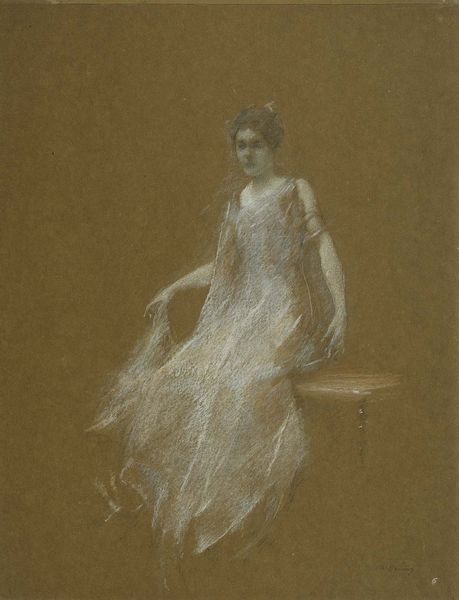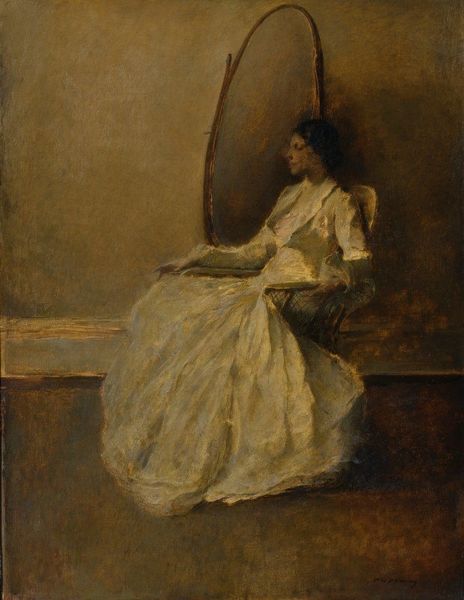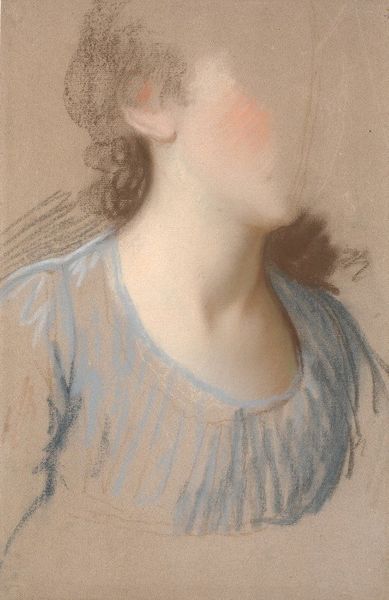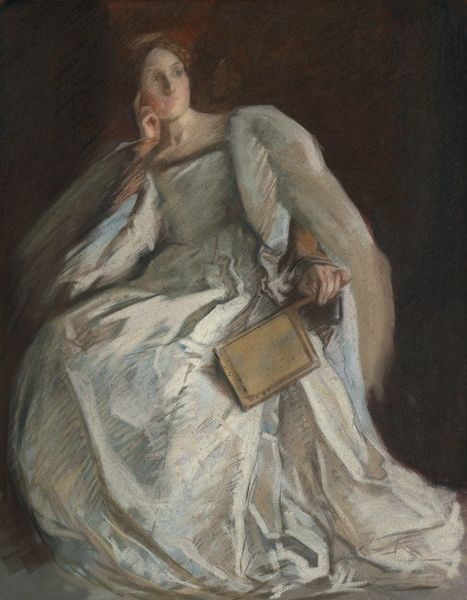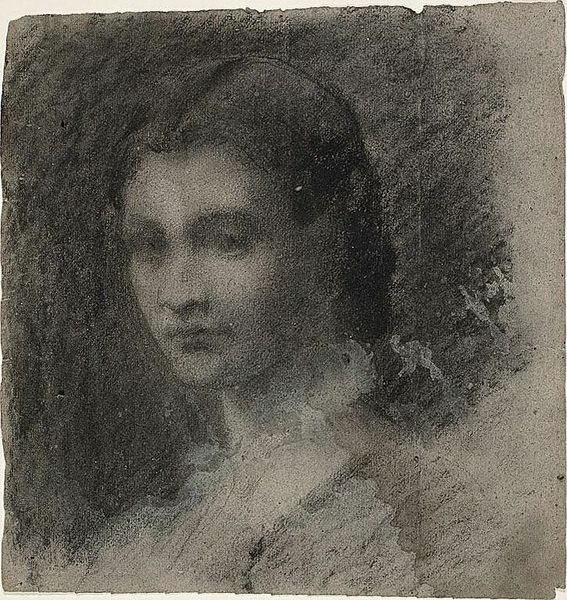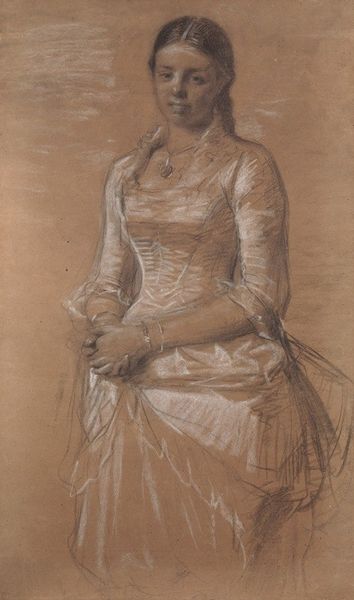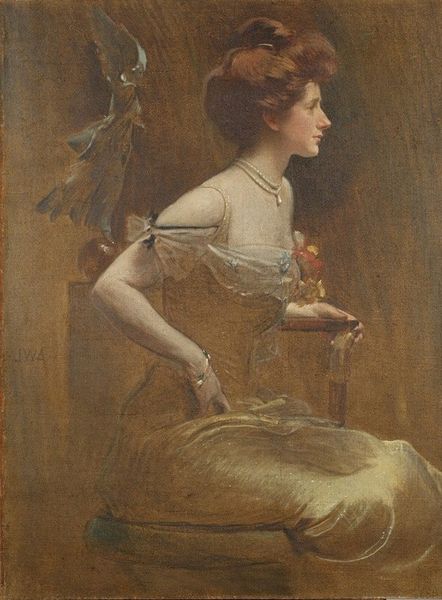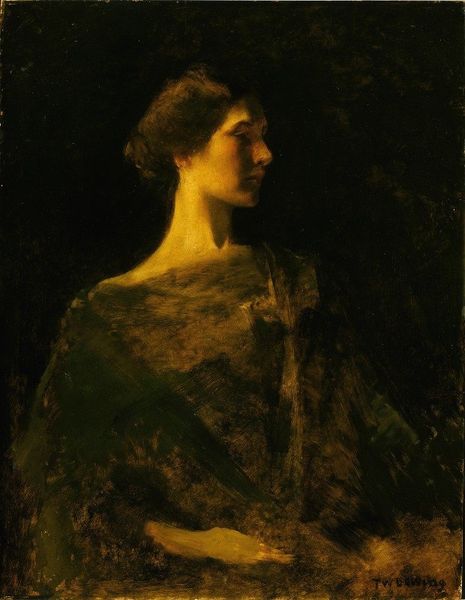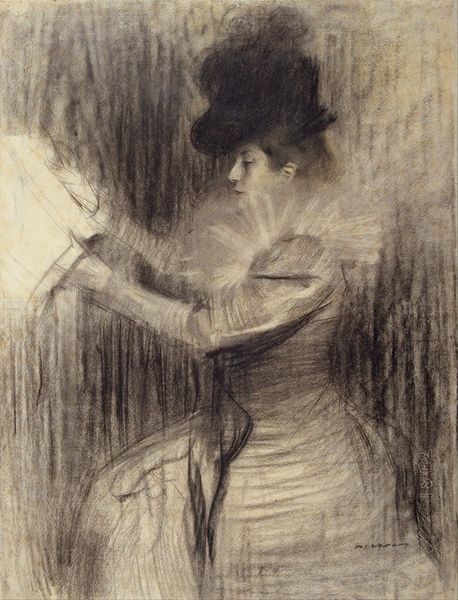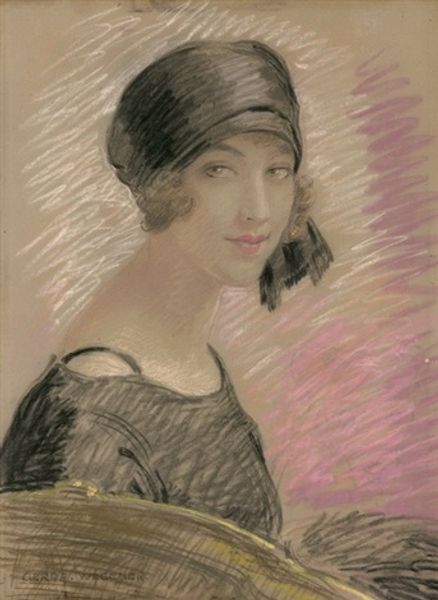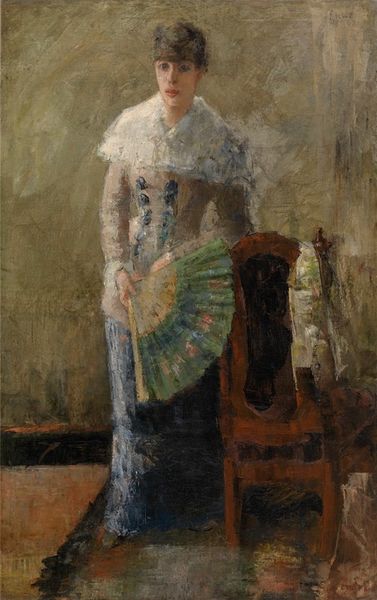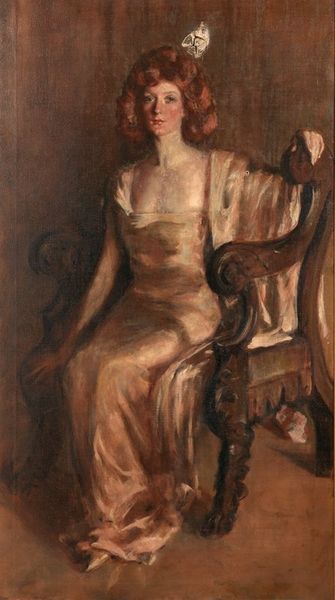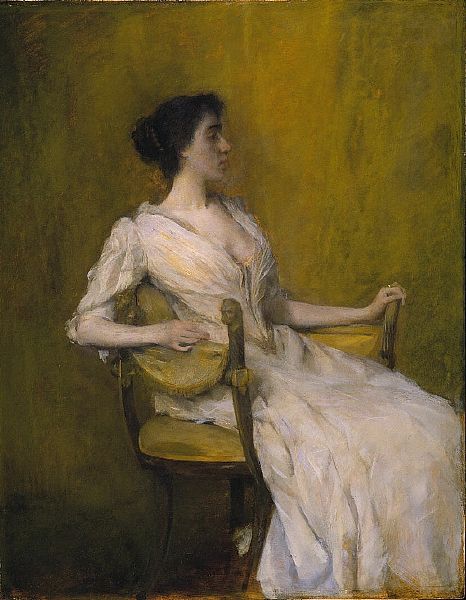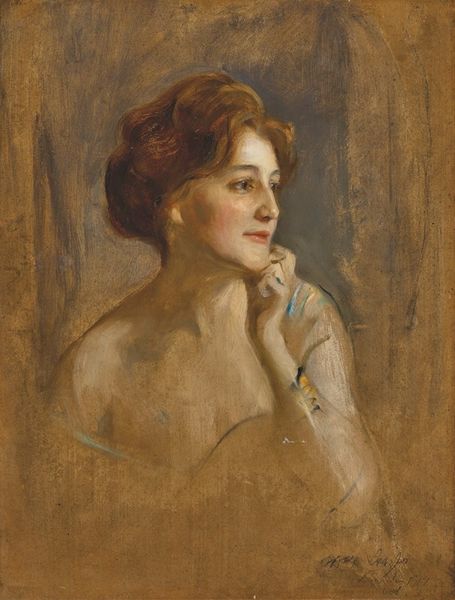
drawing, pastel
#
portrait
#
drawing
#
figurative
#
figuration
#
aesthetic-movement
#
pastel chalk drawing
#
pastel
Copyright: Public Domain: Artvee
Editor: Here we have "Lady in Rattan Armchair," a pastel drawing created somewhere between 1895 and 1908 by Thomas Wilmer Dewing. I'm struck by its ethereal quality, almost like a faded dream. What do you see in this piece? Curator: It's interesting that you mention "dream," because Dewing’s work, and the Aesthetic Movement more broadly, really cultivated an image of refined leisure, aiming to elevate taste and intellect, in reaction against rapid industrialization. Do you notice how the muted palette and delicate lines contribute to that? Editor: Absolutely. It almost feels as though the artist is deliberately obscuring her, as if she's fading into the background. It feels very deliberate. Is this about idealizing women of a certain class? Curator: Precisely. Consider the rattan armchair itself. It speaks to global trade and colonial structures of the time, yet here, it's rendered as an element of quiet domesticity. The woman’s passivity is part of the artwork’s politics, presenting a woman’s role as ornamental. Editor: So the beauty and stillness are connected to wider ideas about class and access. I hadn’t considered how the furniture itself played into that narrative. Curator: It's about understanding the visual language of the period and what it was trying to communicate about beauty, gender, and social order, things that were always in negotiation at that time. Editor: This has given me so much to think about! I am seeing so much more beyond the "dreamy" aesthetic now. Curator: Exactly! Contextualizing an image like this can transform our understanding.
Comments
No comments
Be the first to comment and join the conversation on the ultimate creative platform.
